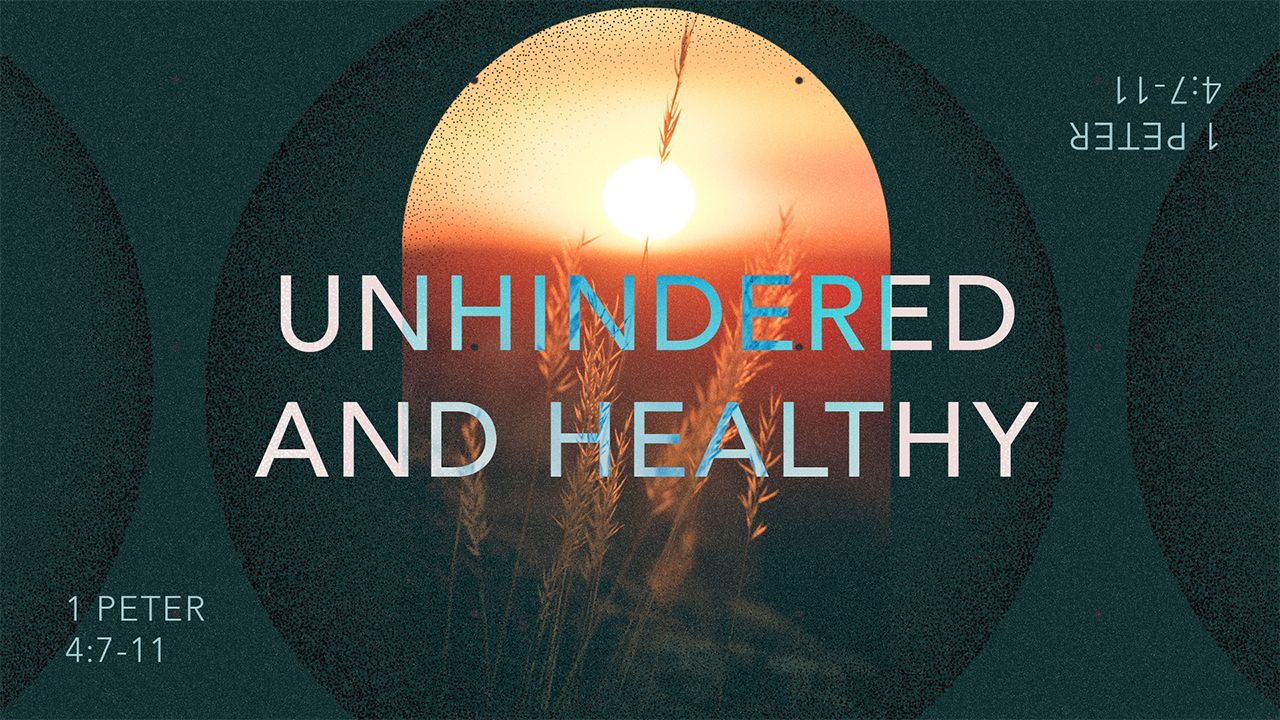Access Granted
Website Editor • July 22, 2020
From Pastor Ky Martin's message on Matthew 8:1-17:
After Jesus preached the Sermon on the Mount, the crowds were ASTONISHED at his teaching — he was teaching as one who had *authority* and not as a scribe. ⠀⠀⠀⠀⠀⠀⠀⠀⠀
⠀⠀⠀⠀⠀⠀⠀⠀⠀
Matthew 8 shows Jesus using this authority to not only HEAL people but to give them ACCESS to God! The first three examples Matthew gives are accounts of the leper, a centurion, and Peter's mother-in-law:
The Leper
In Jesus’ day, the most despised and rejected people were those with leprosy. People with this infection were deemed unclean and untouchable. They were cast out of their homes and families to live in isolation.
In Matthew 8:2, a leper approaches Jesus KNOWING that He alone had the power to cure his incurable affliction.
Jesus, in response, stretched out His hand and *touched* the unclean man. Immediately, the leper was healed.
In touching the man, Jesus broke the Law of Moses (Lev. 13:45-46) — a taboo of taboos — but, instead of becoming unclean Himself, He took the man’s disease: abolished it, and released it. He healed the man and gave him (...an outcast among outcasts!) access to God Himself.
Jesus shows us that there’s no person beyond the reach of our God. He touches the untouchables; He heals the unhealables; He loves the unloveables.
The Centurion
The next appeal for miraculous help comes from a centurion, a Gentile. Matthew tells the story in a way which emphasizes the significance of an approach to a Jewish Messiah from a non-Jew.
The centurion comes to Jesus seeking healing for a servant lying paralyzed at his home. Jesus offered to come and heal the man, but the centurion replied, “Lord, I am not worthy to have you come under my roof, but only say the word and my servant will be healed.”
Jesus MARVELED at this man’s faith and said, “Truly, I tell you, with no one in Israel have I found such faith. I tell you many will come from east and west recline at the table with Abraham, Isaac, and Jacob in the kingdom of heaven.”
The picture Jesus paints is one of Jews and Gentiles united together under His reign. ALL are welcome at this table.
Peter's Mother-In-Law
The account of Peter’s mother-in-law stands in contrast to that of the leper and the centurion, because of it’s simple-ness. It is simply the story of Jesus meeting with illness and responding with immediate healing power.
In this account, no one pleas for healing. Jesus simply sees her and goes to her.
--
Through all of these examples, we see Jesus giving people access to Himself (God) in ways that wouldn't have been possible without Him.
From Moses' Tabernacle to Soloman's Temple, the only way for a person to come near God was to enter the "Holy of Holies". According to Jewish Law, only a high priest could enter this most sacred place, and only once a year at that. Surrounding the Holy of Holies were different levels of access at the temple in which your race, social status, and gender determined how close you could come to the most holy place.
In sharing the accounts of the leper (who wouldn't have been allowed anywhere near the temple), the centurion (who could have only entered the temple court), and Peter's mother-in-law (whose gender who have prohibited her from nearness to the Holy of Holies)
-- Jesus breaks this old covenant system and gives us something better.
Instead of having to go to the temple to be near to God, Jesus literally shows up at a woman's bedside. He met her where she was, just as He meets us where we are.
Jesus shows us that there’s no person beyond the reach of our God.
He touches the untouchables; He heals the unhealables; He loves the unloveables.
In coming to earth and dying for us on the cross, Jesus made a way for us ALL to have access to Him. That access -- nearness to Him -- is so much greater than any miracle or any healing we can imagine.
Want access? He already did the work. All you have to do is have faith, like the centurion, and believe.
Watch this sermon, here.

Notes from Ky Martin's sermon on Sunday, June 29, 2025. Sermon text: 1 Peter 5:1-4 Gen. 1:1-2 In the beginning, God created the heavens and the earth. 2 The earth was without form and void, and darkness was over the face of the deep. And the Spirit of God was hovering over the face of the waters. 3 And God said, “Let there be light,” and there was light. Churches should be led by a plurality of elders. Acts 11:30, Acts 14:23, Acts 15, Acts 16:4, Acts 17:1, Acts 20:28, Acts 21:17, Philippians 1:1, 1 Timothy 3:2, 1 Timothy 4:14, 1 Timothy 5:17, Titus 1:5, Titus 1:7, James 5:14 Instructions for Pastors: Shepherd God’s flock The words “God’s flock” remind the elders that the congregation does not belong to them. It is God’s church, and they are given the privilege and responsibility of shepherding it. -Thomas R. Schreiner Exercise oversight Oversee willingly (not under compulsion) 1 Cor. 9:16 For if I preach the gospel, that gives me no ground for boasting. For necessity is laid upon me. Woe to me if I do not preach the gospel! Oversee eagerly (not for shameful gain) 2 Cor. 2:17 For we are not, like so many, peddlers of God’s word, but as men of sincerity, as commissioned by God, in the sight of God we speak in Christ. Lead by example (not domineering) Strive for Humility 1. Pure Christian humility disposes a person to take notice of everything that is good in others, and to make the best of it, and to diminish their failings. - Jonathan Edwards The Chief Shepherd is Coming Shepherds God’s flock Exercises oversight 1 Peter 2:25 For you were straying like sheep, but have now returned to the Shepherd and Overseer of your souls. Oversees willingly (not under compulsion) Oversees eagerly (not for shameful gain) 2 Corinthians 8:9 For you know the grace of our Lord Jesus Christ, that though he was rich, yet for your sake he became poor, so that you by his poverty might become rich. Leads by example (not domineering) Hebrews 2:8b-9 we do not yet see everything in subjection to him. 9 But we see him who for a little while was made lower than the angels, namely Jesus, crowned with glory and honor because of the suffering of death, so that by the grace of God he might taste death for everyone. Discipleship Questions: What are some of the benefits of having multiple elders? How would you define the job / responsibilities of an elder? If you were to move to a new area tomorrow, what would you be looking for in a new church? Why, do you think, the “younger” are specifically instructed to be subject to the elders? How does someone who is “clothed in humility toward one another” behave in the church? Out of the five pastors at Crosspoint, who is your favorite? (just kidding, don’t ask that).

Notes from Lance Shumake's sermon on Sunday, June 22, 2025. Sermon text: 1 Peter 4:12-19 We shouldn’t be surprised when we encounter suffering John 15:18–20 [18] “If the world hates you, know that it has hated me before it hated you. [19] If you were of the world, the world would love you as its own; but because you are not of the world, but I chose you out of the world, therefore the world hates you. [20] Remember the word that I said to you: ‘A servant is not greater than his master.’ If they persecuted me, they will also persecute you. 2 Timothy 3:12 Indeed, all who desire to live a godly life in Christ Jesus will be persecuted We can rejoice knowing we are sharing in Christ’s suffering Matthew 5:11–12 [11] “Blessed are you when others revile you and persecute you and utter all kinds of evil against you falsely on my account. [12] Rejoice and be glad, for your reward is great in heaven, for so they persecuted the prophets who were before you. We don’t bring glory to God when we suffer for doing wrong We should choose to glorify God instead of being ashamed We should live in light of the coming judgment of God “Peter shows the meaning of our suffering from two sides. First, our suffering for Christ finds its significance in Christ’s suffering for us. We share now in suffering for him as we shall one day share in glory with him (4:13; 5:1). Secondly, our suffering does not destroy us, but purifies us. The fire of God’s judgment that we endure is not the fire of wrath that will consume the unbelieving.” —Edmund P. Clowney, The Message of 1 Peter We can entrust our souls to our faithful Creator Discipleship Questions: Why is it our tendency to be surprised when we encounter suffering? What are some reasons for rejoicing when you encounter suffering? Why is it so tempting to classify all suffering as persecution, even when we suffer for doing wrong? How can you resist feeling ashamed when you suffer for being a Christian? How do you think God uses suffering to purify His church? How does entrusting your soul to God help you find hope?

Notes from Scott Sutton's sermon on Sunday, June 15, 2025. Sermon text: 1 Peter 4:7-11 Would you know if your prayers were hindered? How would you know? What causes prayers to be more fruitful? What causes prayers to be interrupted? What hinders our prayers? Not living with your spouse in an understanding way A lack of sober mindedness and self-control Hindered prayers hurt our relationships A lack of self-control… letting your flesh rule you will never result in healthy relationships. A lack of sober mindedness… letting your thoughts rule you will never result in healthy relationships. Self-control and sober minded prayer are those inward things that result in outward expressions. They ready us to set our focus and affections on other people. Application: Keep loving one another earnestly Aim to cover a multitude of sins Make your home available to others Make your gifts available to others Speaking Serving Discipleship Questions: Have you ever become aware that your prayers are hindered? How did you know? What are some practical steps that we can take to strengthen our prayer lives? How do hindered prayers hurt our relationships? How do unhindered prayers strengthen our relationships? What are some practical ways that we can aim to cover a multitude of sins? Define at least 2 practical ways in which you will make your home and your gifts available to others this week. How has your life been impacted by others who have made their homes and their gifts available to you?


